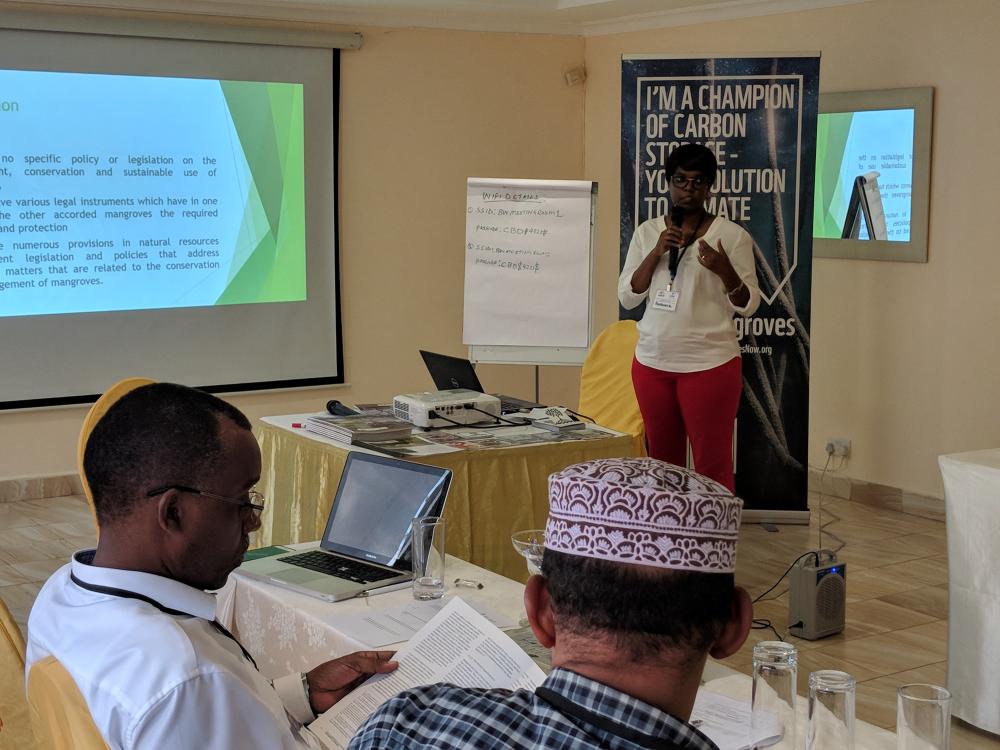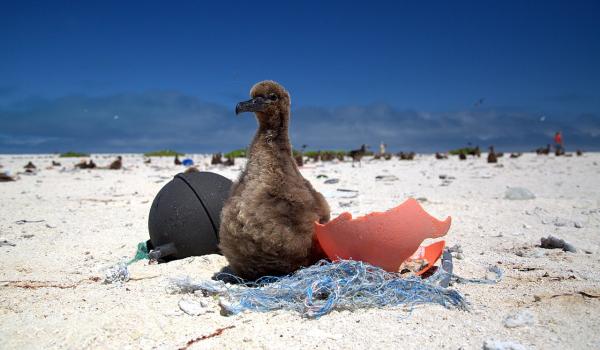Save Our Mangroves Now! conducting workshops to enhance legal capacity for mangrove management in Kenya and Tanzania
Acknowledging concerns around the legal and institutional frameworks governing mangroves, the Save Our Mangroves Now! initiative is hosting workshops with local partners to raise awareness and develop legal capacity of mangrove conservation and management. Funder by the German government, the initiative will use these workshops to facilitate dialogue and understanding to improve use of legal tools in Kenya and Tanzania
In Kenya and Tanzania, the land and the environment are crucial matters. Indeed, thousand of local communities directly rely on nature for subsistence. In the meantime, regulatory measures are taken by the authorities to address and prevent environmental degradation. In this context, tensions are observed all along the coast where populations depend on mangroves for charcoal, construction or income. For instance, this situation occurs in Gazi, Kenya where a group of women from the local community decided to build a boardwalk and guide tourists in the mangroves. Unfortunately, the boardwalk is now old and should be repaired for safety concerns. However, in the meantime, the government implemented a ban on mangrove cutting to preserve this valuable ecosystem and the services it provides. The group of women argues that they cannot undertake the reparations because of these governmental measures depriving them from the benefits of a sustainable livelihood. On the other hand, the national forest service argues that these measures are appropriate and that requests for exemption should not be addressed to them but to the local office. This preoccupying situation illustrates the need to reconcile development and conservation and clarify responsibilities through an open dialogue among stakeholders.
Acknowledging this situation and concerns around the legal and institutional frameworks, the Save Our Mangroves Now! [SOMN] initiative is hosting workshops with local partners to raise awareness and develop legal capacity of mangrove conservation and management. Funded by the German Ministry of Economic Cooperation and Development, the SOMN initiative jointly implemented by WWF Germany and IUCN will use these workshops to facilitate dialogue and understanding to improve use of legal tools in Kenya and Tanzania. Using results from a study recently published by SOMN, it was found that in many cases adequate legislation already exists, but is not implemented due to lack of resources, coordination and capacity.
Participants of the two workshops co-hosted by Kenyan marine and fisheries research institute and the University of Nairobi, and Tanzanian forestry service and the University of Dar es Salaam, respectively, come from a mix of governmental, NGO and private sector backgrounds. These include legal experts and field based practitioners as well as community members and business owners. The goal is to share perspectives on mangrove conservation challenges, build understanding of available legal tools for conservation, and foster discussion on how to improve the legal frameworks for conservation and sustainable use of mangrove ecosystems.
In both countries, participants could learn about the legal and institutional frameworks in place and discuss the challenges and gaps in mangrove conservation and management. They could also participate in field visits to discover the mangroves in the area and meet local communities undertaking conservation projects. Finally, group activities and training exercises were conducted followed by active plenary discussions.
In Kenya, the discussions focused on infrastructure projects and the role of Environmental Impact Assessments and permitting to counterbalance development. The issues arising from the ban on mangrove cutting was also largely evoked as well as the lack of institutional coordination putting conservation in jeopardy.
In Tanzania, participants could benefit from an intense and complete training on legal tools and processes affecting mangroves in the country. They also discussed the ways to better involve communities in policy making processes and reconcile their livelihood with mangrove conservation.
The outcomes of these workshops take the form of recommendations for policy making and institutional processes and the creation of networks to monitor these outcomes and further work on improving mangrove governance and enhancing legal capacity in each country.
These fruitful workshops will be followed by another two workshops in Mozambique and Madagascar later in the year.
The workshop reports will be published shortly.
For more information, contact Léa Badoz, project consultant (lea.badoz@gmail.com).





